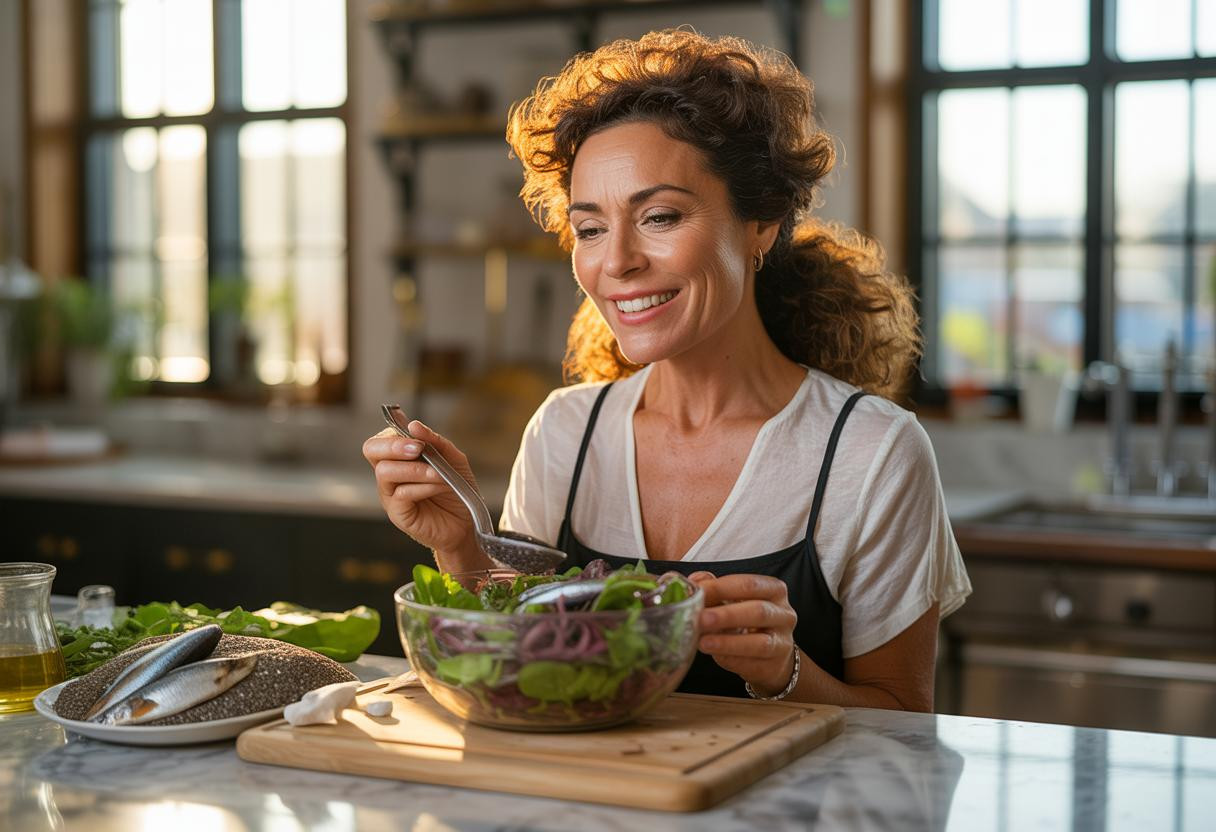At 52, I watched my once-thick hair become noticeably thinner around my temples and crown. Like many women navigating post-menopausal changes, I initially reached for expensive supplements promising miraculous regrowth. But after discovering the latest 2025 research on nutrition-driven hair recovery, I shifted my focus to my plate instead of my medicine cabinet—and the results have been genuinely encouraging.
Why food-based solutions are gaining momentum in 2025
The beauty industry is experiencing a significant shift away from unregulated supplements toward whole-food nutrition approaches. Recent studies show that women over 50 who focus on specific nutrient-dense foods see measurable improvements in hair density within 6-9 months. Unlike supplements that often lack FDA oversight, foods provide bioavailable nutrients your body actually recognizes and absorbs efficiently.
This approach feels like investing in a capsule wardrobe for your follicles—fewer, higher-quality pieces that work harmoniously together rather than a chaotic collection of isolated vitamins.
The power trio: sardines, chia seeds, and dark leafy greens
Sardines deliver vitamin D and omega-3 fatty acids that support follicle development, while chia seeds provide zinc and copper essential for protein synthesis. I started adding sardines to my weekly salads and sprinkling chia seeds into my morning yogurt. Within three months, my hairstylist noticed less breakage during cuts.
Spinach and other dark greens supply iron and folate—nutrients that become increasingly important as our bodies absorb minerals less efficiently after menopause. Think of these foods as your hair’s personal styling team, each playing a specific role in creating the final look.
How hormonal changes after 50 affect your nutritional needs
Post-menopausal testosterone dominance can trigger DHT production, leading to follicle miniaturization. While you can’t completely halt hormonal shifts, anti-inflammatory foods help create a healthier scalp environment. Foods rich in omega-3s act like a gentle, daily scalp massage from the inside out.
Your protein requirements also increase during this life stage, as follicles are essentially protein structures. Incorporating fermented foods can enhance nutrient absorption, making your dietary efforts more effective.
Common mistakes that sabotage your efforts
Many women over 50 unknowingly undermine their hair health through seemingly innocent dietary choices:
- Eating too little protein due to smaller appetites or weight concerns
- Avoiding red meat completely without replacing iron from other sources
- Overlooking vitamin D during winter months when deficiency peaks
- Combining iron-rich foods with coffee or tea which blocks absorption
Real-life meal strategies that actually work
My friend Sarah, 58, transformed her thinning hair by making small but consistent changes. She started her day with chia seed pudding topped with berries, enjoyed sardine salads twice weekly, and switched her afternoon snack to a handful of almonds. After six months, her ponytail felt noticeably thicker.
The key is treating these foods like essential wardrobe pieces—you wouldn’t skip wearing a bra, so don’t skip your hair-supporting nutrients. Consistency matters more than perfection when building sustainable habits.
What leading experts quietly recommend
Dermatologists increasingly emphasize that balanced nutrition trumps isolated supplements for mature women. The Mediterranean diet pattern—rich in fish, nuts, seeds, and vegetables—provides the nutrient synergy that supports healthy hair growth naturally.
Trichologists note that women who focus on whole foods rather than supplement bottles tend to see more sustainable improvements. Your hair reflects your overall health, much like how a well-coordinated outfit reflects thoughtful planning.
Creating your personalized hair-healthy routine
Start by adding one new hair-supporting food each week rather than overhauling your entire diet. Small, consistent changes create lasting transformation without overwhelming your lifestyle.
Remember that hair growth is a marathon, not a sprint. Just as building a timeless wardrobe takes patience and intention, nourishing your hair from within requires the same thoughtful, long-term approach. Your future self—and your hairstylist—will thank you for starting today.
